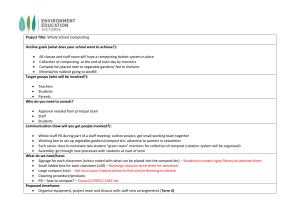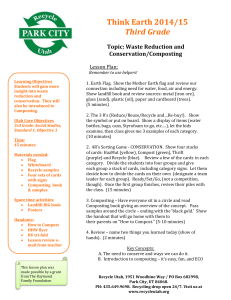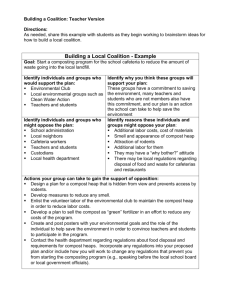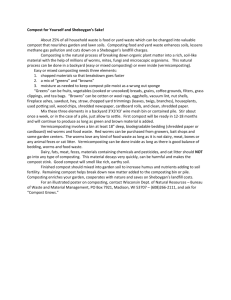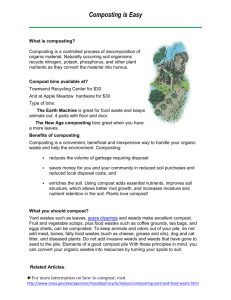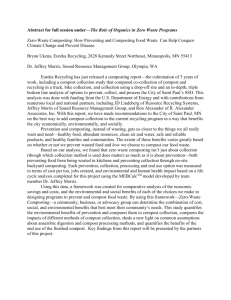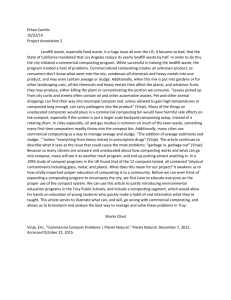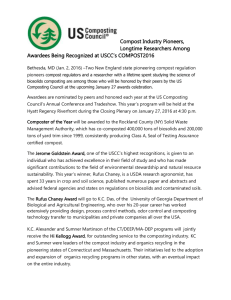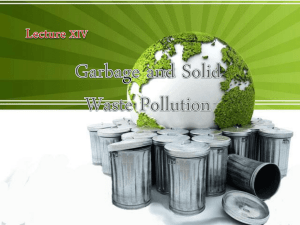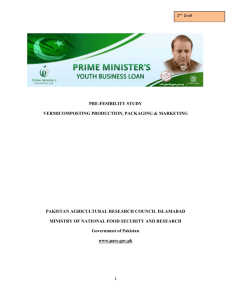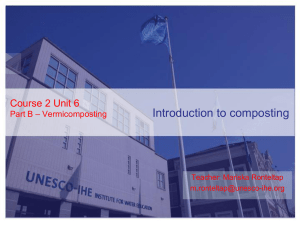AQUATIC SYSTEMS - Community GroundWorks
advertisement
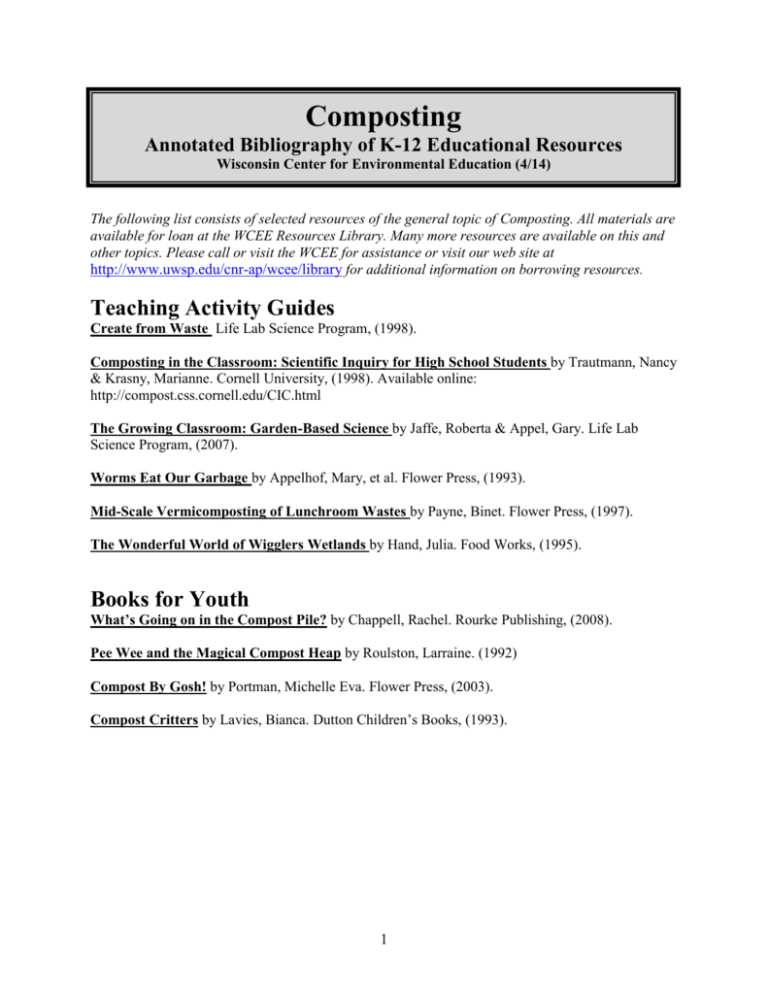
Composting Annotated Bibliography of K-12 Educational Resources Wisconsin Center for Environmental Education (4/14) The following list consists of selected resources of the general topic of Composting. All materials are available for loan at the WCEE Resources Library. Many more resources are available on this and other topics. Please call or visit the WCEE for assistance or visit our web site at http://www.uwsp.edu/cnr-ap/wcee/library for additional information on borrowing resources. Teaching Activity Guides Create from Waste Life Lab Science Program, (1998). Composting in the Classroom: Scientific Inquiry for High School Students by Trautmann, Nancy & Krasny, Marianne. Cornell University, (1998). Available online: http://compost.css.cornell.edu/CIC.html The Growing Classroom: Garden-Based Science by Jaffe, Roberta & Appel, Gary. Life Lab Science Program, (2007). Worms Eat Our Garbage by Appelhof, Mary, et al. Flower Press, (1993). Mid-Scale Vermicomposting of Lunchroom Wastes by Payne, Binet. Flower Press, (1997). The Wonderful World of Wigglers Wetlands by Hand, Julia. Food Works, (1995). Books for Youth What’s Going on in the Compost Pile? by Chappell, Rachel. Rourke Publishing, (2008). Pee Wee and the Magical Compost Heap by Roulston, Larraine. (1992) Compost By Gosh! by Portman, Michelle Eva. Flower Press, (2003). Compost Critters by Lavies, Bianca. Dutton Children’s Books, (1993). 1 Compost lessons and curricula for your classroom are easy to find! Here are some suggestions to get you started. Resource The Growing Classroom (Life Lab) The Worm Guide ( CalRecycle) Do the Rot Thing (Central Vermont Solid Waste Management) Composting Across the Curriculum (Marin County Office of Waste Management) The Science and Engineering of Compost (Cornell Waste Management Institute) Composting in the Classroom (Cornell Waste Management Institute) Edible Schoolyard Description Cost $39.95 Website http://www.lifelab.org/tag/the-growingclassroom/ Free download http://www.calrecycle.ca.gov/Publication s/Detail.aspx?PublicationID=912 Topics include an introduction to composting and tips for basic composting, worm composting and spreading the word about composting. Free download http://www.cvswmd.org/uploads/6/1/2/6/ 6126179/do_the_rot_thing_cvswmd1.pdf Learn why composting is important and how it connects to science, math, history, and literature in K-6 classrooms. Free download Activities and curricular connections for middle and high school students. Website http://www.marincounty.org/depts/pw/di visions/mcstoppp/~/media/Files/Departm ents/PW/mcstoppp/education/nov%20201 2/Composting%20Curriculum%20out%2 0of%20print.pdf http://compost.css.cornell.edu/science.ht ml This is a comprehensive guide for teachers interested in guiding composting research projects for high school students. Free download http://compost.css.cornell.edu/CIC.html Use this searchable catalogue to find a listing of compost lessons submitted by fellow educators Website http://edibleschoolyard.org/resourcestools This award-winning resource book for educators contains 480 pages of science, math, and language arts activities that you can do with your students in the garden. Topics include soil, plants, cycles, ecology, weather, nutrition, and food systems. Use Life Lab’s Growing Classroom Standards Database to view alignment to Common Core standards. This guide provides teachers with information on how to start and maintain a successful classroom worm bin. Includes the basics of vermicomposting, worm bin building plans, troubleshooting and fundraising tips, classroom activities, and useful case studies of other successful vermicomposting programs. 2
